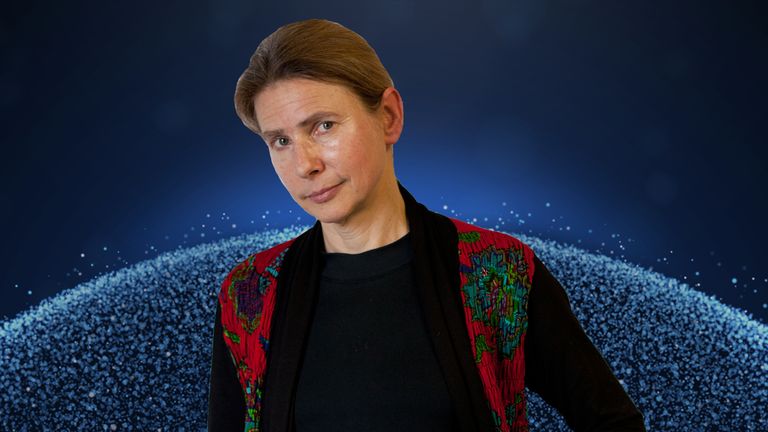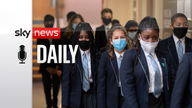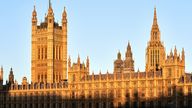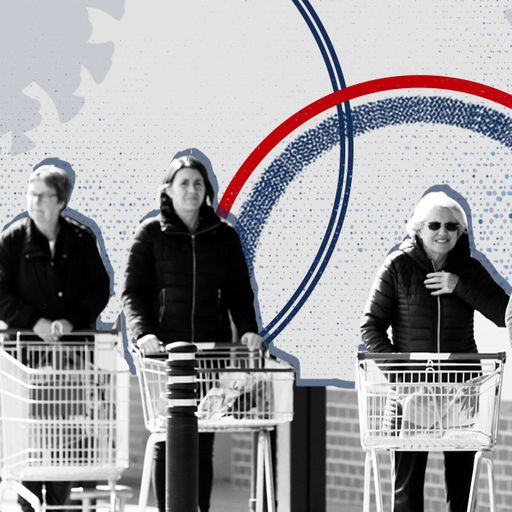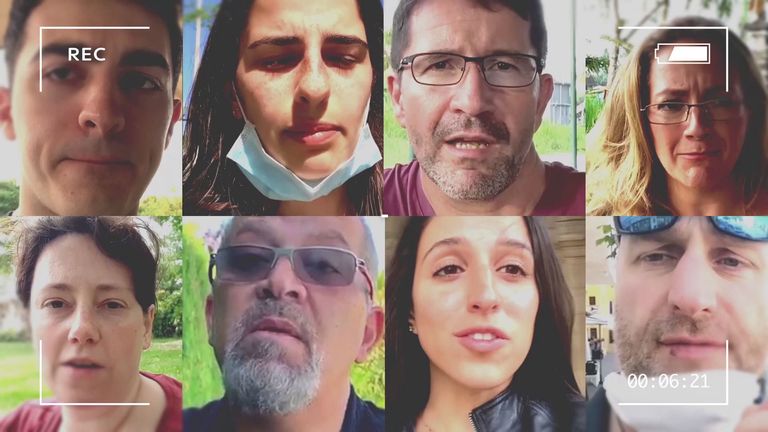After the Pandemic: Bring back the 'old normal' says author Lionel Shriver
The author says keeping the public scared will make it seem as if the utter devastation of the UK economy was worth the price.
Thursday 4 June 2020 13:34, UK
The coronavirus pandemic has killed tens of thousands and forced people across the world to re-evaluate what they think is really important.
Sky News has been canvassing opinion on what will happen in the future.
Here, award-winning author Lionel Shriver explains why she thinks the countrywide lockdown should never have happened and the sooner things get back to how they were before, the better.
No expression sends a chill down my spine like "the new normal".
By inference, we're going to permit a pandemic with relatively mild lethality, in the context of historical infectious diseases, to utterly transform our daily lives until the end of time - and largely for the worse.
If we end up conducting more jobs efficiently from home, fine. If we become more independent from a constrained China, even better.
Otherwise, I read that we can't have high-rises anymore (so what are we going to do, blow them up?). We can't have public transport anymore. We can't fly anymore. We're to expect that we will never again be able to dine at others' homes, never again eat out in financially viable restaurants, never again jostle in crowded pubs.
We're meant to say goodbye to the performing arts altogether, because large groups of people will never again be allowed to gather in one place. So unless West End theatres, jazz clubs like Ronnie Scott's, and venues like the Albert Hall can improbably remain solvent by spacing the audience two metres apart, wearing masks, and preferably plastic visors, with hand sanitiser in every aisle and perhaps large Perspex screens between seats (gosh, I can't wait to buy a ticket) - this country's storied cultural institutions are finished.
:: Listen to the Daily podcast on Apple Podcasts, Google Podcasts, Spotify, Spreaker
Meanwhile, we're also meant to keep regarding one another as walking contagions.
If you're foolish enough to go to someone's garden party, you have to bring your own chair. So what guarded socialising we allow in future is to be conducted with a hyper-awareness at all times of the capacity of our fellow humans to communicate disease.
But we've always been capable of communicating disease, and as recently as this last January we lived with that hazard as the cost of doing business. Can we return to that insouciance, please?
I've not been shy about sharing my opinion that this lockdown nonsense has been one of the gravest mistakes ever made.
At-risk populations could have easily been identified and protected (and they weren't), leaving the rest of us who are at very low risk of dying to get on with our lives.
Instead we've all been co-opted into a mass hysteria. The "new normal" proposes to extend that hysteria forever.
One of the purposes of continuing to queue for half a mile to get into Tesco long after this pantomime fails to make the slightest epidemiological difference, if it ever did, is to justify the grotesque overreaction of the original lockdown.
We have to keep acting fearful to make it seem as if the utter devastation of the UK economy was worth the price. By observing elaborately apprehensive protocols long after the virus has subsided, we will spread the government's propaganda for them.
Some of the primary victims of this outsize anxiety are children, whose medical risk of serious infection is virtually zero. (For pity's sake, 47% of Britons were recently polled as wanting homeschooling to continue indefinitely. That's tantamount to the end of public education.)
The lengths schools are already going to in order to appear "safe" are so absurd that very little real learning could conceivably be taking place.
Instead, children are memorising ditties about hand washing, whirling their arms to ensure no one comes near them, standing all by themselves in isolated chalk circles, and relinquishing any toys or materials that can't be bleached every five minutes.
These kids are learning something, all right - to be neurotic. To avoid making friends, who are mere sources of contamination. To be so obsessed with safety at the expense of any sense of adventure or enjoyment that they're no longer children, but worrywart old biddies and geezers who just happen to be short.
You'd think nobody had ever got sick before. Get a grip. London is expected to have virtually extinguished this virus by the end of this month. Sod "the new normal". Give us back the old normal, and as fast as possible.
This week, Dermot Murnaghan is hosting After the Pandemic: Our New World - a series of special live programmes about what our world will be like once the pandemic is over.
We are being joined by some of the biggest names from the worlds of culture, politics, economics, science and technology.
You can watch the exclusive interview with the Prince Charles in full at 8pm on Thursday.
